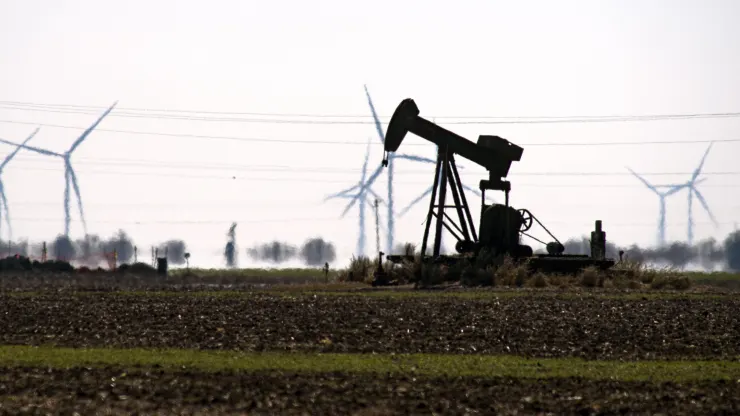
Energy giant BP predicts oil and gas will become a dramatically smaller part of the global energy mix by 2050, while zero-carbon alternatives like wind and solar energy will continue to increase their penetration, the company said in its 12th annual energy outlook report published Monday.
The share of fossil fuels as a primary energy source will fall from 80 percent in 2019 to between 55 and 20 percent by 2050, while renewables’ share will grow from 10 percent to between 35 percent and 65 percent over the same time period.
This fundamental restructuring of global energy markets is driven by three things:
- Sustainability: An increasing focus on the need to slow global warming as extreme weather events become more common and obvious and citizens and customers demand action.
- Security: Newfound desire by countries around the globe to increase their energy security because of the Russian invasion of Ukraine.
- Affordability: An ongoing effort to keep energy prices stable for consumers.
BP called these three factors the “energy trilemma.”
“The continuing rise in carbon emissions and the increasing frequency of extreme weather events in recent years highlight more clearly than ever the importance of a decisive shift towards a net-zero future,” Spencer Dale, the chief economist at BP, wrote in a note published alongside the report.
The wide range of outcomes reflect several possible paths for the energy transition. But in any of the three scenarios, the pace with which renewables enter the global energy system is “quicker than any previous fuel in history,” the report said.
Renewable energy has gotten cheaper both because the technologies are reaching scale and because government policies increasingly include financial incentives.
Global demand for oil is expected to “plateau” for the coming decade before starting to fall off, BP said. The biggest factor will be transportation, which is growing more efficient and increasingly powered by electricity rather than oil, even as overall demand grows in emerging economies.
The war in Ukraine is making countries rethink how much they depend on imports from other countries and how much of their own energy they can generate domestically, according to BP.
“Most importantly, the desire of countries to bolster their energy security by reducing their dependency on imported energy – dominated by fossil fuels – and instead have access to more domestically produced energy – much of which is likely to come from renewables and other non-fossil energy sources – suggests that the war is likely to accelerate the pace of the energy transition,” wrote Dale.
The future for natural gas will depend on how fast the global energy markets decarbonize and how much economic growth comes from emerging economies, the report says. These two forces will tend to push against each other.
Overall, demand for electricity will surge both because emerging economies will demand more electricity and because efforts to mitigate global warming will accelerate demand for purposes such as transportation and heating and cooling buildings. In all of the scenarios BP mapped out, electricity demand will increase by 75 percent by 2050, according to BP.
Meeting the changing needs of global energy demand will require scaling up of carbon capture technology, wind and solar facilities, batteries, hydrogen, CO2 pipelines, and new energy storage capacities. All of this will increase demand for minerals like lithium, copper and nickel.